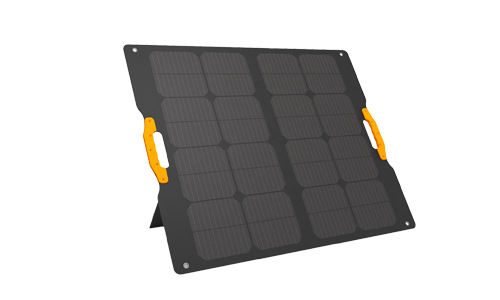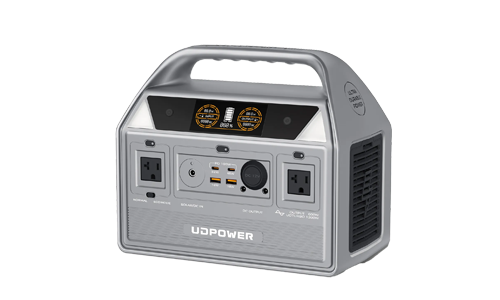Which is Better – UPS or Portable Power Station?
ZacharyWilliamWhen the lights go out or when you're working off-grid, having a reliable power backup solution becomes crucial. But with so many options available, many people wonder: Should I choose a UPS (Uninterruptible Power Supply) or a portable power station? In this article, we’ll break down the differences, use cases, pros and cons, and help you make an informed choice based on your needs.
Table of Contents
- What is a UPS?
- What is a Portable Power Station?
- UPS vs. Portable Power Station: Comparison Table
- Key Differences Explained
- When to Choose a UPS
- When to Choose a Portable Power Station
- Can You Use a Portable Power Station as a UPS?
- Conclusion
- FAQs
What is a UPS?
A UPS (Uninterruptible Power Supply) is a device that provides immediate backup power when your main power source fails. It’s commonly used to protect computers, servers, and networking equipment from power outages and voltage drops.
UPS systems typically use lead-acid batteries and are designed to bridge short power interruptions, allowing you to save work or safely shut down equipment.

What is a Portable Power Station?
A portable power station is a rechargeable battery-powered generator. It features multiple output ports—like AC, DC, USB, and car outlets—and is used to power a wide range of devices, from smartphones to mini-fridges and even CPAP machines.
Unlike a UPS, portable power stations are designed for mobility, high capacity, and off-grid usage. Many models can be charged via solar panels, making them ideal for camping and emergency preparedness.

UPS vs. Portable Power Station: Comparison Table
| Feature | UPS | Portable Power Station |
|---|---|---|
| Instant Backup | ✅ Yes | ❌ Typically No |
| Portability | ❌ No | ✅ Yes |
| Battery Capacity | Low (100–150Wh) | High (300–2000Wh+) |
| Output Types | AC Only | AC, USB, DC, Car Port |
| Solar Charging | No | Yes (on many models) |
| Use Case | Computers, routers | Camping, home backup |
| Price Range | $50–$200 | $200–$2000+ |
Key Differences Explained
- Switchover Speed: UPS switches in milliseconds. Portable stations usually have a delay, which can reboot electronics.
- Portability: UPS is stationary. Power stations are mobile with handles or wheels.
- Capacity: UPS covers short-term use. Power stations offer long runtime and more wattage.
- Charging Options: UPS charges only via AC. Power stations offer AC, solar, and even car charging.
- Battery Type: UPS often uses lead-acid. Power stations use safer, longer-lasting lithium-ion or LiFePO4.
When to Choose a UPS
Choose a UPS if you:
- Need instant, uninterrupted power for critical devices (e.g., desktop PC, router)
- Work in an office or server environment
- Want something always plugged in and automatic
When to Choose a Portable Power Station
Choose a portable power station if you:
- Need high-capacity power for hours or even days
- Plan for camping, emergencies, or off-grid living
- Want flexible output options and solar charging
Can You Use a Portable Power Station as a UPS?
Technically, yes — but with caveats. Most portable power stations have a small delay when switching from grid to battery, which can cause your computer or modem to restart. If you require instant failover, a traditional UPS is more reliable.
That said, some high-end portable power stations (like those from UDPOWER) offer pass-through charging or even UPS modes. Be sure to check the specifications.
Conclusion: Which One is Better?
There’s no one-size-fits-all answer. Here's a simple rule of thumb:
- UPS is better for short-term backup of sensitive, plug-in electronics.
- Portable power stations are better for off-grid, high-capacity, multi-device usage.
Ideally, many homes and businesses can benefit from using both — a UPS for always-on devices, and a portable power station for flexibility and emergencies.
FAQs
1. Can a portable power station replace a UPS?
Not completely. Most portable power stations have a slight switchover delay (typically 10–30ms), which can cause sensitive electronics like PCs or routers to reboot. Some advanced models offer UPS-like features, but for mission-critical systems, a traditional UPS is more reliable.
2. How long does a portable power station last during a power outage?
It depends on its battery capacity and the power consumption of connected devices. For example, a 1000Wh unit can power a 100W device for roughly 10 hours. Use a runtime calculator to estimate.
3. Can a UPS be charged with solar panels?
No. Traditional UPS systems are designed for wall charging only. They do not support solar input. Portable power stations, however, are often compatible with solar panels and ideal for off-grid use.
4. Is a portable power station safe for sensitive electronics?
Yes—especially models with pure sine wave inverters. These deliver clean power similar to wall outlets, ensuring compatibility with laptops, CPAP machines, and even refrigerators.
5. Which option is more eco-friendly?
Portable power stations are more eco-friendly, particularly those with LiFePO4 batteries and solar charging capability. UPS systems typically use lead-acid batteries and draw constant power from the grid.
6. Can I use both a UPS and a portable power station together?
Yes. Many users use a UPS for their desktop PC or network equipment and a portable power station for mobile devices or home backup during extended outages. Just be cautious not to daisy-chain them unless properly configured.
7. What is the lifespan of a UPS vs. a portable power station?
A UPS with lead-acid batteries may last 2–5 years with proper maintenance. Portable power stations using lithium-ion batteries last 500–800 cycles, while LiFePO4 models can exceed 3000 cycles.
8. Can a portable power station run a refrigerator?
Yes, depending on the power station's output and the refrigerator’s wattage. A 500W fridge can typically run 4–6 hours on a 1000Wh battery. Always check the starting wattage (surge power).
9. Does a UPS make noise or require ventilation?
Yes, many UPS units have internal fans and can generate noise and heat. They should be placed in ventilated areas. Portable power stations are generally quieter, especially fanless models.
10. Can I travel with a portable power station?
Yes, but air travel restrictions apply. Most airlines do not allow batteries over 100Wh in carry-on or checked luggage. Check with your airline. For car or RV travel, there are no such restrictions.
11. Do UPS systems or power stations need maintenance?
UPS batteries degrade over time and may need replacement every few years. Portable power stations require minimal maintenance—just keep them charged and avoid full discharges where possible.
Still not sure which is right for you? Explore UDPOWER’s range of portable power solutions to find the perfect fit for your needs.


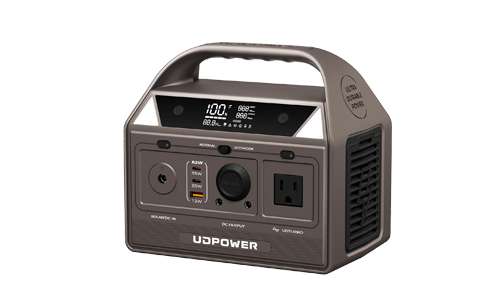
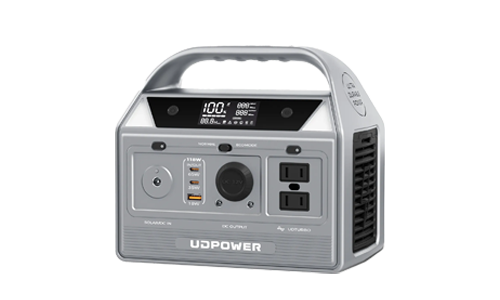
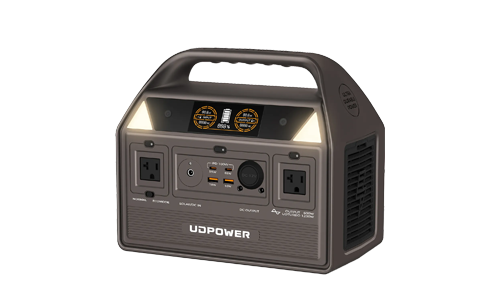
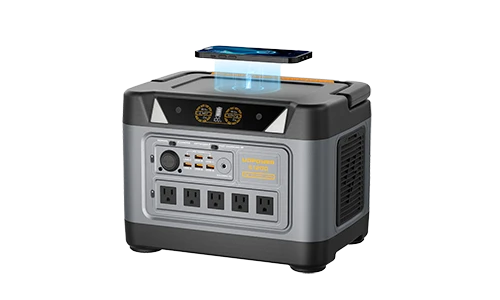
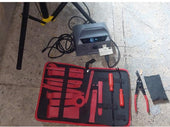

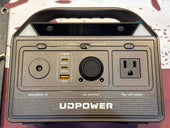
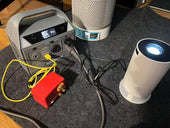
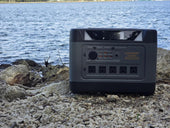
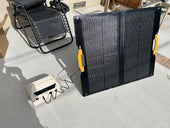
























![How to Live In The Woods [Complete Guide]](http://udpwr.com/cdn/shop/articles/Off-Grid_Cabin_Option_f6c94fe7-1ae7-4c3a-baf5-ed9fe684c832.png?v=1763523215&width=170)





